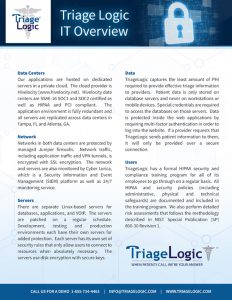By Dr. Ravi Raheja
Telephone Triage nurses play an important role in assessing sick patients over the phone and directing them to the appropriate level of care. In addition to the clinical aspect, nurses play an important role in the human aspect by providing an empathetic and reassuring health professional that they can trust.
It is not unusual for first-time parents or parents of newborns to be very anxious about their child’s symptoms. Sometimes they may need extra assistance in feeling comfortable with the nurses’ assessment and outcome of the call.
Here are some helpful steps to help make every parent feel comfortable and some extra steps for overly anxious parents.
- Reassure the parent from the beginning
The introduction of the call sets the tone. Make sure you take a deep breath and smile before returning a phone call. Your calmness and tone of voice will go a long way to make the caller feel at ease.
You can reassure a parent by saying, “I am glad you called. We are going to go through everything and take good care of your little one.”
- Give the parent guidance on what to expect and some control on the decision
An anxious parent will feel better if they know how the process works. So you can say “We are going to go through some specialized questions specially designed for your child. This will help us make sure your child is okay. After we figure out the next steps, we will come up with a plan together and answer any questions.”
- Let them know that their doctor is available can be very helpful
If a parent seems overly anxious, it helps to say, “we are going to go over everything. If you still have concerns, we can contact your doctor and get them to talk to you.” Usually, that is enough to make them feel better.
- Ask them what is concerning them
After an assessment, if the parent still seems anxious, you can ask an open-ended question such as, “you still seem a little hesitant about our plan. Is there anything else concerning you or something else you would like to discuss?”
- Schedule a follow-up call
Offer to call them back in an appropriate time frame to check on them. This will reassure the parent and also give you a chance to reassess the child’s symptoms and the anxiety level of the parents over time.
- TRUST your instincts and theirs
Always remember, respect parent’s instincts. If it seems you have an overly anxious parent even after a thorough assessment, there may be something else going on that they do not want to discuss with the nurse. Reassure them that it is okay to contact the doctor on call and if they want to, or indicate a place where they can be seen.
Dr. Ravi Raheja is a board-certified pediatrician who has served as Medical Director for TriageLogic for over 10 years.

How secure is your patient data?
Find out the steps TriageLogic takes to protect patient data and ensure that our products are properly secure.






